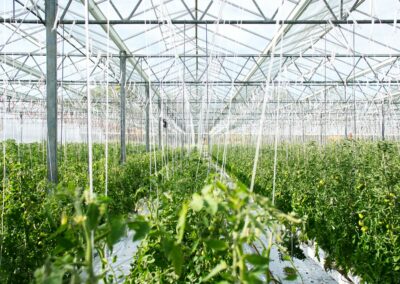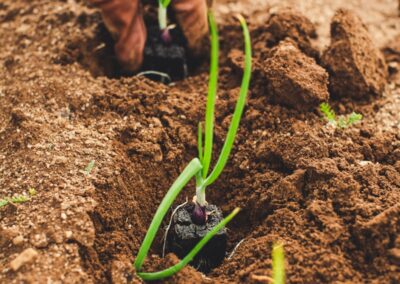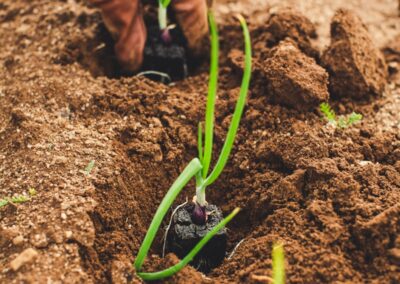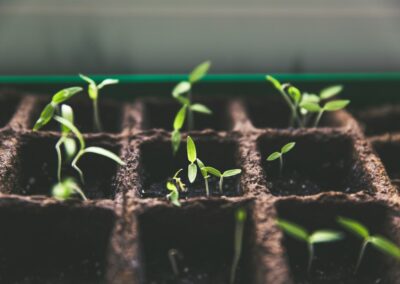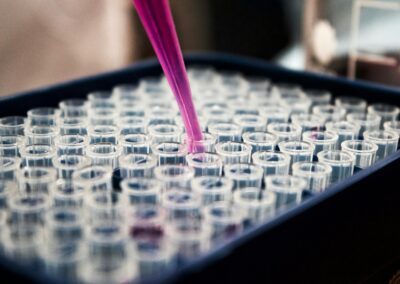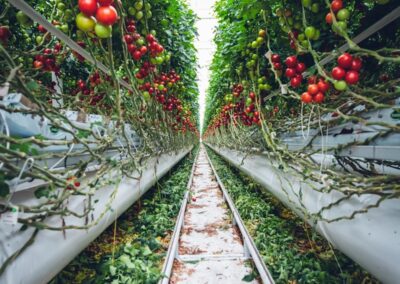Revolutionizing Crop Management and Agricultural Practices
Leveraging CRISPR Technology for Crop Resilience
CRISPR Technology in Agriculture is transforming the way crops are developed and managed, particularly in regions like Saudi Arabia and the UAE, where agricultural resilience is critical. CRISPR, a revolutionary gene-editing tool, allows scientists to precisely modify the DNA of crops to enhance their resistance to biotic stressors such as pests and diseases. By creating crops that are inherently resistant to these challenges, CRISPR reduces the need for chemical pesticides, which can harm the environment and human health. This advancement not only protects crop yields but also promotes sustainable farming practices. In cities like Riyadh and Dubai, where agricultural innovation is a priority, CRISPR technology is paving the way for more resilient and sustainable agricultural systems.
Improving Tolerance to Abiotic Stressors
Abiotic stressors, such as drought, salinity, and extreme temperatures, pose significant threats to crop productivity, especially in arid regions like Saudi Arabia and the UAE. CRISPR technology enables the development of crops that can withstand these harsh environmental conditions. By editing specific genes responsible for water retention, salt tolerance, and heat resistance, CRISPR creates crops that can maintain high yields even under adverse conditions. This enhanced tolerance to abiotic stressors is crucial for ensuring food security and sustainability in regions with challenging growing conditions. The ability to produce resilient crops that thrive in extreme climates underscores the transformative potential of CRISPR technology in modern agriculture.
Promoting Sustainable Agricultural Practices
The integration of CRISPR technology into agriculture supports sustainable farming by reducing the dependency on chemical inputs and enhancing crop resilience. This technology aligns with the goals of precision agriculture, which aims to optimize resource use and minimize environmental impact. By creating crops that require fewer inputs and are more resistant to environmental stressors, CRISPR technology contributes to the sustainability and resilience of agricultural systems. In the UAE and Saudi Arabia, where sustainable agriculture is essential for long-term food security and environmental health, the adoption of CRISPR technology is a significant step towards achieving these goals. This approach not only enhances crop productivity but also ensures that agricultural practices are environmentally friendly and economically viable.
Integrating AI and Blockchain in CRISPR-based Agriculture
The integration of Artificial Intelligence (AI) and Blockchain technology is further enhancing the impact of CRISPR technology in agriculture. AI can analyze vast amounts of genomic and environmental data to identify the most effective gene edits for improving crop resilience. This data-driven approach ensures that CRISPR modifications are precise and beneficial. Blockchain technology provides transparency and traceability in the CRISPR modification process, from the initial gene edit to the distribution of modified crops. This transparency builds trust among consumers and regulatory bodies, ensuring that CRISPR-modified crops meet safety and quality standards. In regions like Riyadh and Dubai, where technological innovation is embraced, AI and blockchain are crucial for optimizing the benefits of CRISPR technology in agriculture.
Executive Coaching for Agricultural Leaders
Executive coaching services are becoming increasingly essential for agricultural leaders in the UAE and Saudi Arabia. As the agricultural sector integrates more complex technologies, effective leadership and management skills are crucial for navigating this transformation. Executive coaching helps leaders develop strategic thinking, effective communication, and change management skills. These competencies are vital for successfully implementing new technologies, such as CRISPR-modified crops, and for driving organizational success. By fostering a culture of continuous improvement and innovation, executive coaching ensures that agricultural enterprises can adapt to the evolving technological landscape and maintain a competitive advantage.
Generative AI in Precision Agriculture
Generative AI is at the forefront of developing innovative solutions for precision agriculture, particularly in regions like Riyadh and Dubai. This advanced form of AI can analyze complex datasets and generate customized recommendations for crop management. By simulating various farming scenarios, generative AI helps farmers explore different strategies to optimize crop performance and resource use. It can also assist in designing efficient planting patterns and irrigation systems tailored to the unique conditions of each field. The use of generative AI in integrating CRISPR technology exemplifies the transformative potential of artificial intelligence in modern farming, making practices more efficient, sustainable, and productive.
#CRISPR #Agriculture #CropResilience #SustainableFarming #AgriculturalTechnology #AIinAgriculture #BlockchaininAgriculture #BioticAndAbioticStress #CropManagement #EnvironmentalSustainability #Riyadh #Dubai #SaudiArabia #UAE




